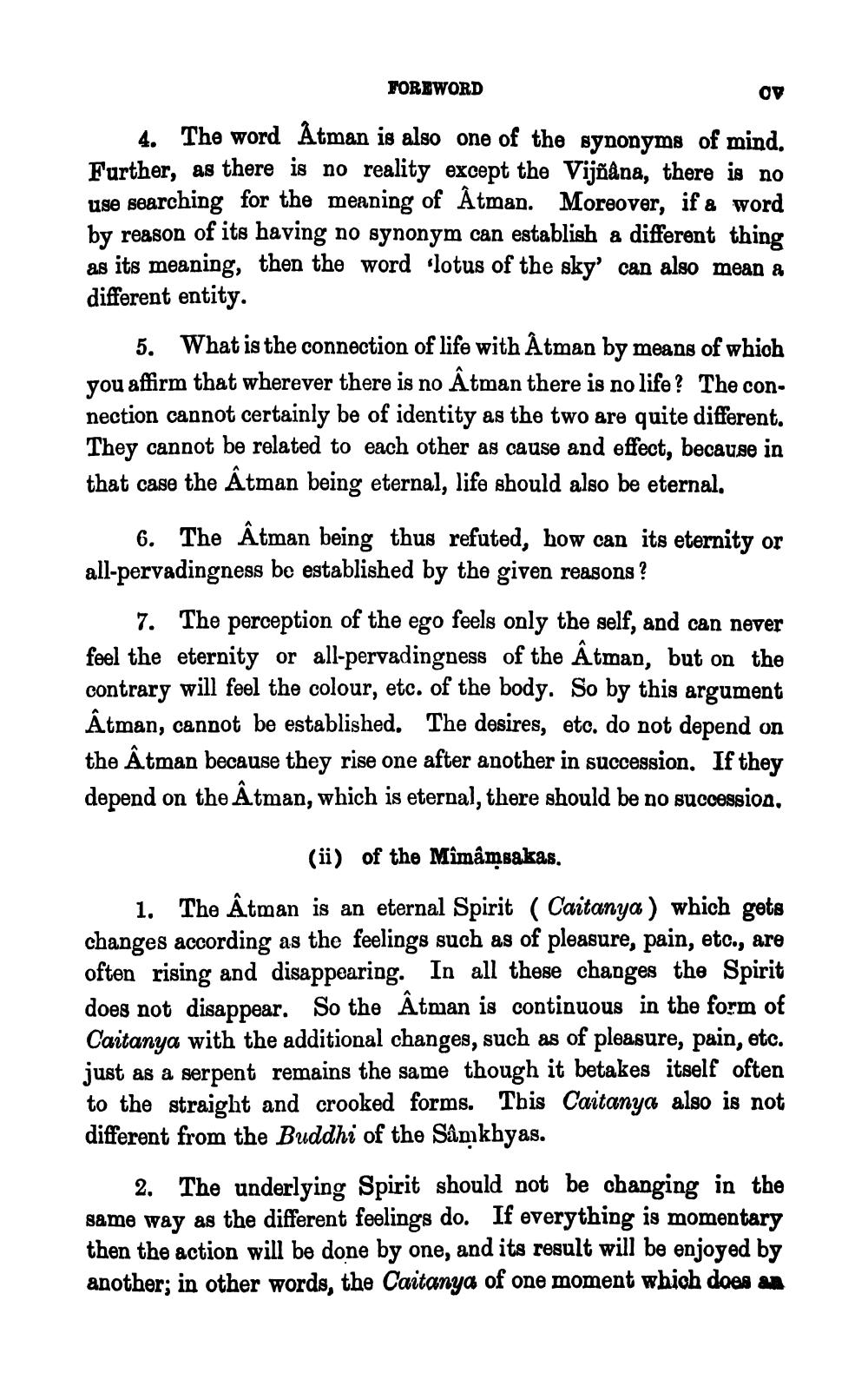________________
FOREWORD
4. The word Atman is also one of the synonyms of mind. Further, as there is no reality except the Vijñâna, there is no use searching for the meaning of Atman. Moreover, if a word by reason of its having no synonym can establish a different thing as its meaning, then the word 'lotus of the sky' can also mean a different entity.
OV
5. What is the connection of life with Atman by means of which you affirm that wherever there is no Âtman there is no life? The connection cannot certainly be of identity as the two are quite different. They cannot be related to each other as cause and effect, because in that case the Âtman being eternal, life should also be eternal.
6. The Atman being thus refuted, how can its eternity or all-pervadingness be established by the given reasons?
7. The perception of the ego feels only the self, and can never feel the eternity or all-pervadingness of the Atman, but on the contrary will feel the colour, etc. of the body. So by this argument Âtman, cannot be established. The desires, etc. do not depend on the Âtman because they rise one after another in succession. If they depend on the Âtman, which is eternal, there should be no succession.
(ii) of the Mîmâmsakas.
1. The Atman is an eternal Spirit (Caitanya) which gets changes according as the feelings such as of pleasure, pain, etc., are often rising and disappearing. In all these changes the Spirit does not disappear. So the Atman is continuous in the form of Caitanya with the additional changes, such as of pleasure, pain, etc. just as a serpent remains the same though it betakes itself often to the straight and crooked forms. This Caitanya also is not different from the Buddhi of the Sâmkhyas.
2. The underlying Spirit should not be changing in the same way as the different feelings do. If everything is momentary then the action will be done by one, and its result will be enjoyed by another; in other words, the Caitanya of one moment which does an




